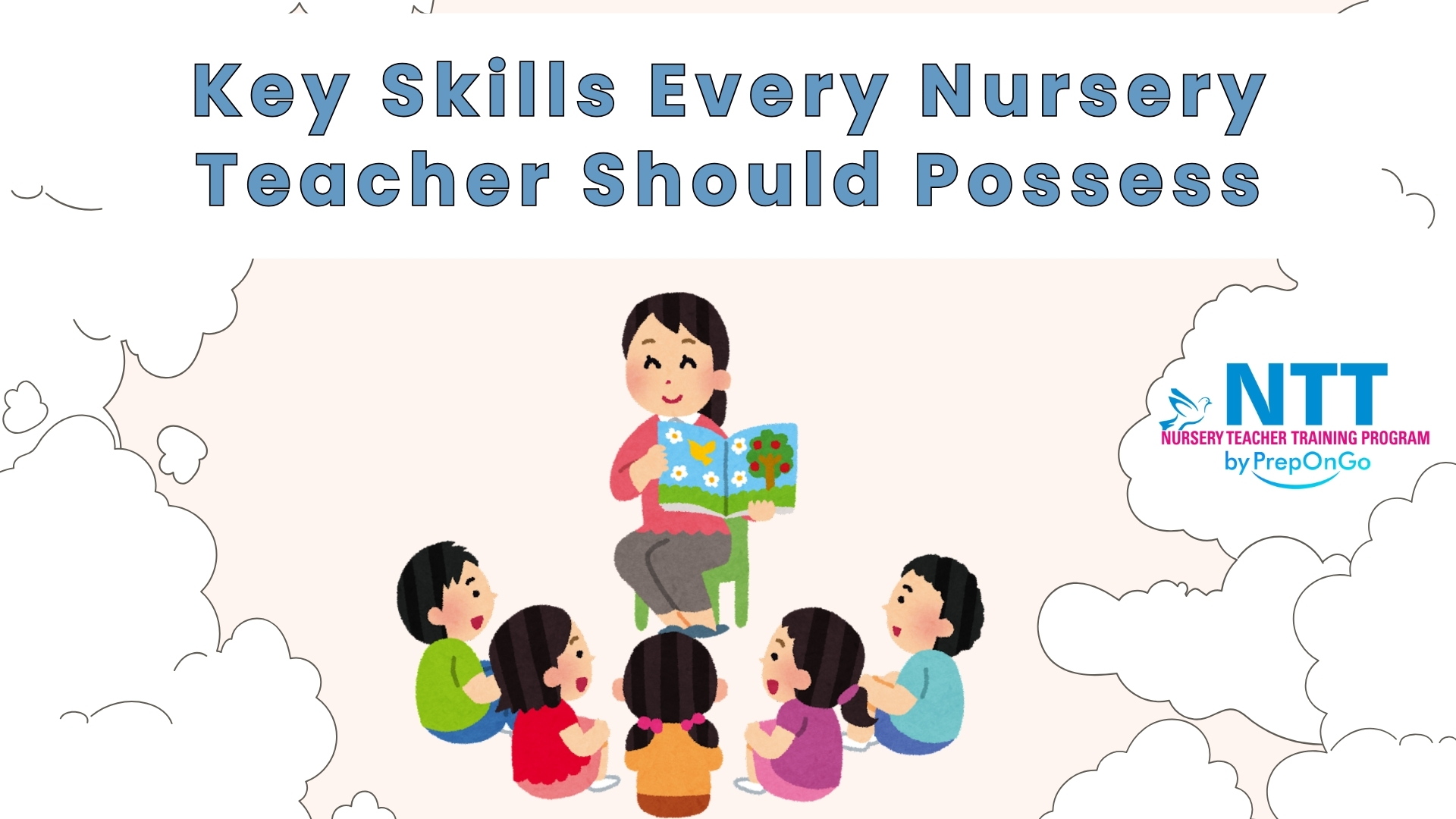Key Skills Every Nursery Teacher Should Possess

1. Patience and Calmness
Why It’s Important: Working with young children can be unpredictable and demanding. Patience and the ability to remain calm in various situations are essential for managing a classroom effectively.
How to Develop It:
- Practice mindfulness and stress-relief techniques.
- Understand child development stages to set realistic expectations.
2. Strong Communication Skills
Why It’s Important: Effective communication with children, parents, and colleagues is vital. Nursery teachers must be able to convey instructions clearly, listen actively, and foster open lines of communication.
How to Develop It:
- Engage in active listening exercises.
- Participate in communication skills workshops and training.
3. Creativity and Imagination
Why It’s Important: Young children learn best through play and creative activities. A teacher’s ability to create engaging, imaginative lessons helps stimulate children’s minds and keeps them interested in learning.
How to Develop It:
- Explore new teaching resources and ideas.
- Incorporate arts, crafts, and storytelling into daily routines.
4. Organizational Skills
Why It’s Important: Managing a classroom requires strong organizational skills to plan lessons, track student progress, and maintain a structured learning environment.
How to Develop It:
- Use planning tools and apps to stay organized.
- Set up a systematic approach for classroom management and lesson planning.
5. Empathy and Emotional Intelligence
Why It’s Important: Understanding and responding to children’s emotional needs is crucial. Empathy helps build trust and creates a nurturing environment where children feel safe and valued.
How to Develop It:
- Practice empathy by putting yourself in others’ shoes.
- Develop emotional intelligence through self-awareness and reflection exercises.
6. Adaptability and Flexibility
Why It’s Important: Every day in a nursery can be different, and teachers must be able to adapt to changing circumstances and the diverse needs of children.
How to Develop It:
- Embrace change and view challenges as learning opportunities.
- Stay informed about new teaching methods and strategies.
7. Knowledge of Child Development
Why It’s Important: A deep understanding of child development stages helps teachers create age-appropriate activities and identify any developmental concerns early on.
How to Develop It:
- Pursue continuous education in early childhood development.
- Attend workshops and seminars focused on child psychology and development.
8. Positive Attitude and Enthusiasm
Why It’s Important: A positive attitude and enthusiasm for teaching can inspire and motivate young children, making learning an enjoyable experience.
How to Develop It:
- Find joy in everyday teaching moments.
- Surround yourself with positive influences and maintain a healthy work-life balance.
9. Problem-Solving Skills
Why It’s Important: Teachers often encounter unexpected situations that require quick and effective problem-solving. Being able to think on your feet and find solutions is essential.
How to Develop It:
- Practice brainstorming solutions to common classroom issues.
- Collaborate with colleagues to share problem-solving strategies.
10. Teamwork and Collaboration
Why It’s Important: Nursery teachers often work as part of a larger team of educators and staff. Effective collaboration ensures that all aspects of a child’s education and well-being are addressed.
How to Develop It:
- Participate in team-building activities and professional learning communities.
- Communicate openly and respect the contributions of all team members.
11. Cultural Sensitivity and Inclusivity
Why It’s Important: A diverse classroom requires teachers to be culturally sensitive and inclusive, ensuring that all children feel respected and valued.
How to Develop It:
- Educate yourself about different cultures and backgrounds.
- Create an inclusive curriculum that reflects diversity.
Conclusion
Being a nursery teacher requires a combination of interpersonal, organizational, and instructional skills. By developing these key skills, nursery teachers can create a positive, engaging, and nurturing environment that supports the holistic development of young children. Whether through continuous professional development or everyday practice, honing these abilities will enhance the effectiveness and satisfaction of teachers in their vital role of shaping young minds.
